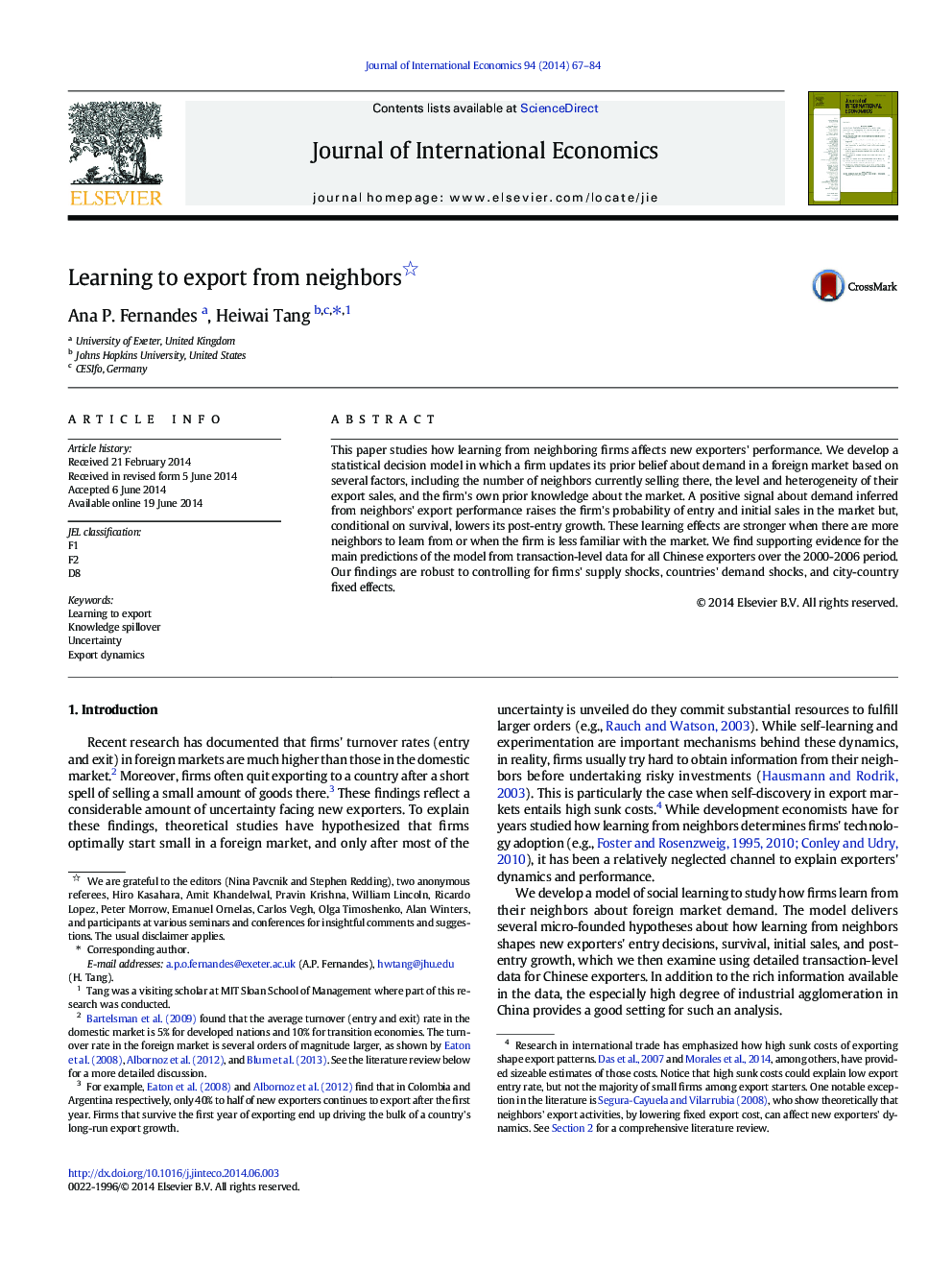| Article ID | Journal | Published Year | Pages | File Type |
|---|---|---|---|---|
| 962580 | Journal of International Economics | 2014 | 18 Pages |
Abstract
This paper studies how learning from neighboring firms affects new exporters' performance. We develop a statistical decision model in which a firm updates its prior belief about demand in a foreign market based on several factors, including the number of neighbors currently selling there, the level and heterogeneity of their export sales, and the firm's own prior knowledge about the market. A positive signal about demand inferred from neighbors' export performance raises the firm's probability of entry and initial sales in the market but, conditional on survival, lowers its post-entry growth. These learning effects are stronger when there are more neighbors to learn from or when the firm is less familiar with the market. We find supporting evidence for the main predictions of the model from transaction-level data for all Chinese exporters over the 2000-2006 period. Our findings are robust to controlling for firms' supply shocks, countries' demand shocks, and city-country fixed effects.
Related Topics
Social Sciences and Humanities
Economics, Econometrics and Finance
Economics and Econometrics
Authors
Ana P. Fernandes, Heiwai Tang,
